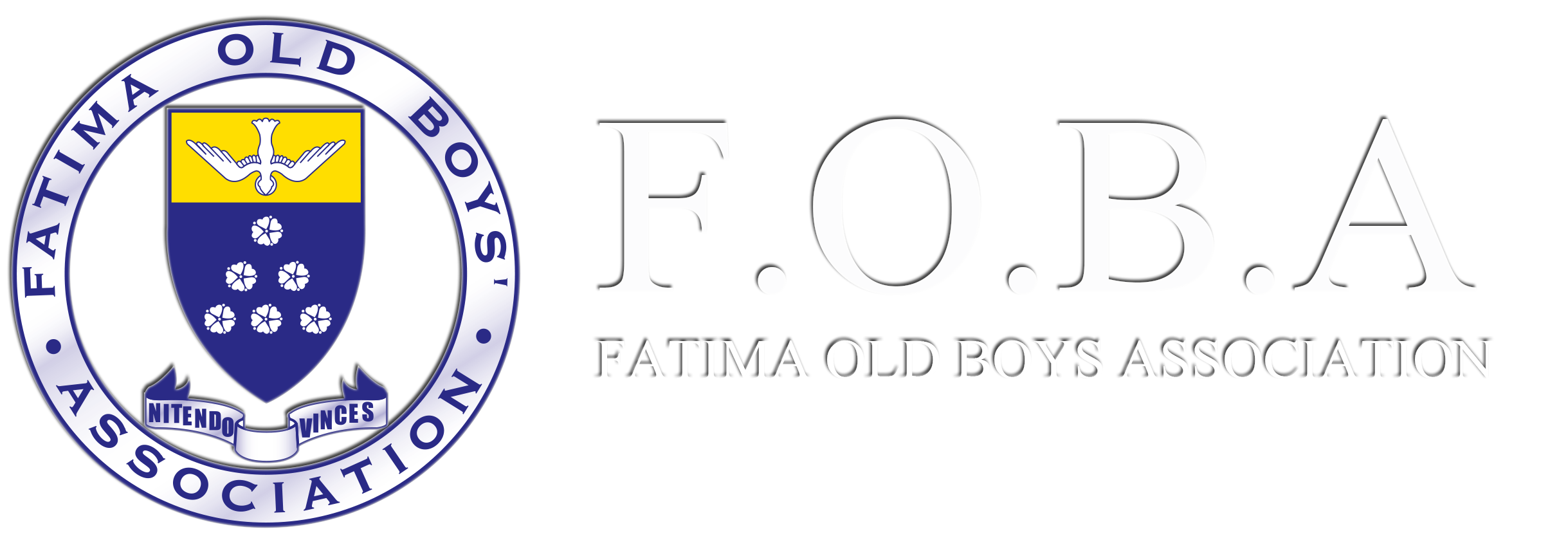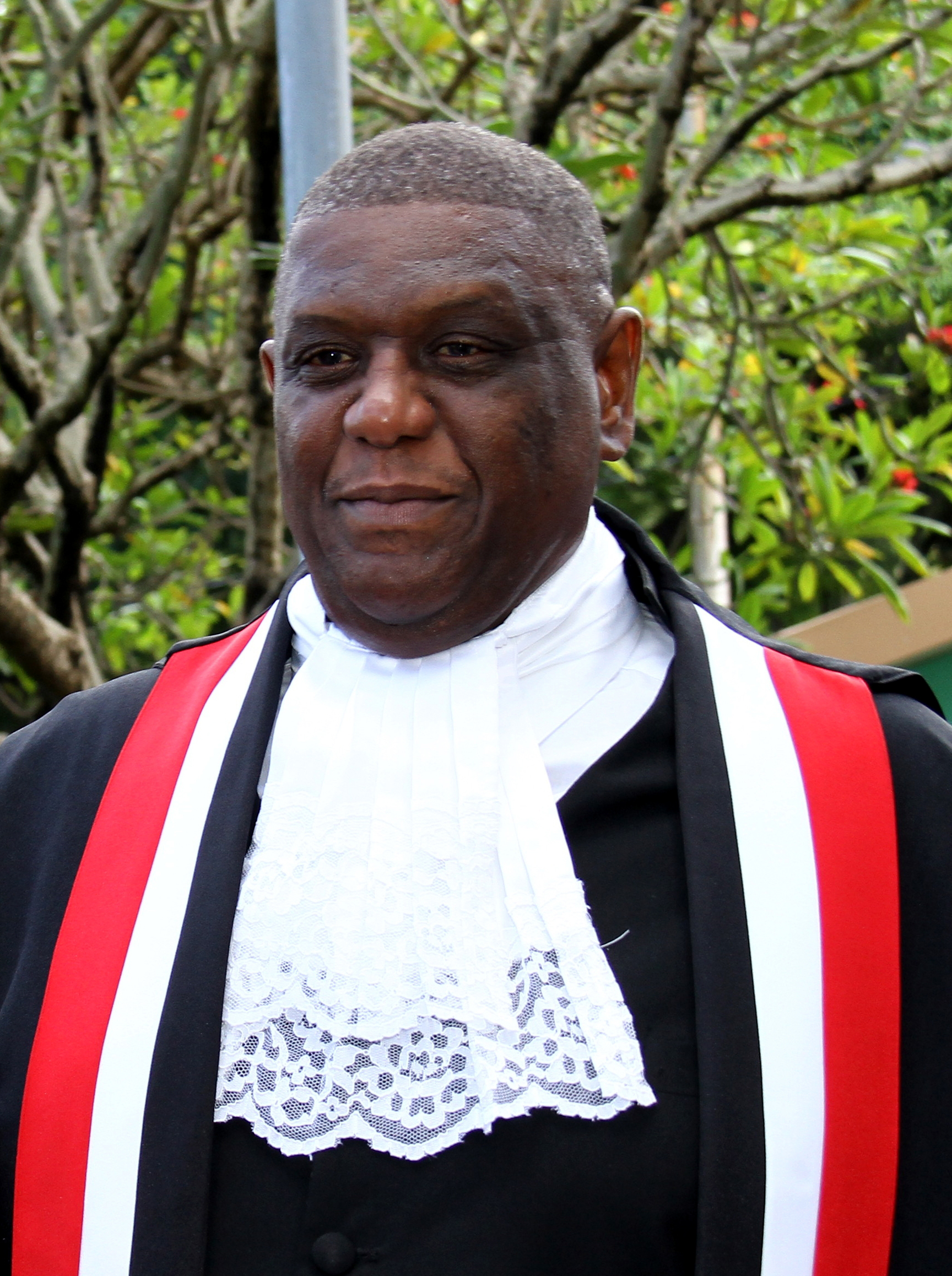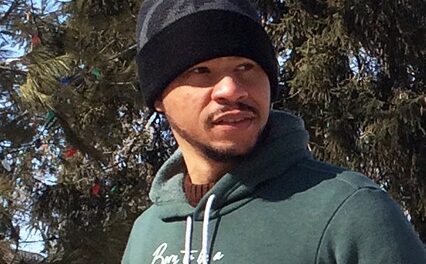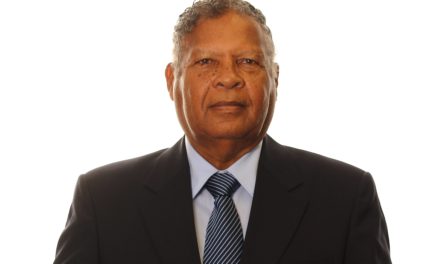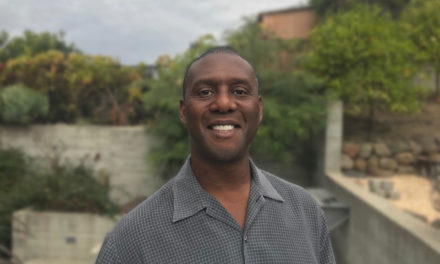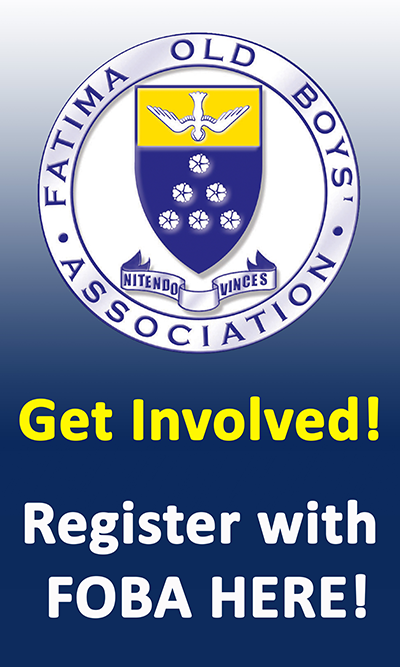- Views 3307
- Likes 1
Justice Malcolm Holdip is a High Court Judge and a Fatima alumnus from September 1966 to June 1973. During his tenure at Fatima, he held the premier position of Head Boy at the school. He has served as a Judge in the Family Court on more than one occasion. He has also held many prominent legal positions in the Caribbean Region where he served as Director of Public Prosecutions in the Federation of St. Kitts and Nevis from 1991 to 1994 and he was appointed Director of Public Prosecutions in Grenada 1997-1999. He held the position of General Counsel of the National Bank Group of Companies in the Federation of St. Kitts and Nevis. This group comprises one of the largest indigenous commercial banks in the OECS, the National Trust Company and the National Insurance Company. He was a member of the Legal team of John Benjamin and Company in Anguilla and also held the prestigious position of President of the Bar Association.
Q: Sum up your years in Fatima in one phrase?
A: Seven memorable years of camaraderie and friendships (now lifelong)
Q: How did Fatima influence your choice of career?
A: When I was at school I wanted to be a teacher and lawyer and when I left, I taught for 3 years at St. Joseph College, Richmond Street, St. Joseph. Clive Pantin was instrumental in getting me placed there fresh from Form 6. While there, I enrolled in UWI part-time to do a first degree in Arts and General Studies. Two years into my degree, I got a call to say that the law faculty had a space in Cave Hill.
Q: What separates a Fatima student from the rest in the corporate world?
A: I firmly believe the background, training, education and moral values which he may have inculcated and fostered at the school (which I call an established institution) would generally go a long way in ensuring that he has the proper character and formation to hold his position in society.
Q: I notice that despite your busy schedule, you always make time for your alma mater. What keeps you here?
A: Well basically, persons who attend schools like Harvard and other like schools take pride in their associations even when they live in territories outside of those schools. Consequently, in terms of the life as a Trini, this is my flagship school, which has prepared and nurtured me perfectly for my current life. As I got older, and I reminisce about my times at Fatima with friends, some have mentioned how much they have listened to what I said and apparently I have had a positive influence on their lives especially during my time as Head Boy.
I always look out for my fellow students (past and present) in life and I carry an inherent and unshakeable pride for Fatima College. Ha Ha – It is a constant source of mirth in my household, that every time I pass in front of the school I pose the question to my wife “Do you remember what that building represents?” I continue to be involved in our fundraisers especially the cook-out where my wife and I produce a dish, the all-inclusive and the May Fair. As Fatima alumni, many of us have involved our spouses and it can be aptly termed “a family-inclusive”.
Q: Describe the most striking differences in the school during your time and now.
A: Currently, one of the most striking differences is that during and after school, the boys now wear their shirts out of their pants. That was totally unimaginable at the school during our time. Even on a weekend if you had to attend an event at school, you would not dare have your shirt out of your pants. The physical structure is a striking difference and there is constant enhancement. The Audio Visual room was erected during my final year as I was about to exit school. Fatima was the pioneer of the Audio Visual industry and students from the AV Club moved on to be the second generation TTT employees. Fatima was one of the first schools to offer Computer Programming in the 80s and one of our internationally renowned students Robert Wickham who attended Harvard and MIT was among the frontrunners. I think that had to do with the brilliance and foresight of Clive Pantin, then Principal and former Minister of Education.
Before that ‘New Wing’, there was the technical/ vocational wing and Technical Drawing was one of those subjects that survived. The bicycle shed was also a major difference. I rode to school on a bike for the seven years that I attended Fatima College. My bike was a famous bike in the school, known as Big Ben which provided space for a pillion rider one of whom is the well-known Newman George.
Q: What are the most rewarding aspects of your present job?
A: I like to see myself as an officer of justice and therefore I feel a sense of accomplishment on a societal level. Personally, I am given an opportunity to develop myself in terms of my skills, my legal acumen and the opportunity to apply the law. I worked in the Family court for three years and I learned a lot about family life, property law and issues dealing with children, this was a very intense and somewhat emotional period as well. I have now returned to the Criminal Division, which could be very challenging at times especially given that there are a number of systems and processes which remain outstanding in order to increase the efficiency and effectiveness of the existing system.
I am also the Chairman of the Drug Treatment Court Steering Committee which is a relatively new initiative and this Committee works towards setting policy guidelines as they relate to intervention for persons whose criminal activity is driven by drug addiction. This continues to be a most satisfying and rewarding pogramme . I work closely with other stakeholders such as the Magistracy, the Probation Office, Prison Authority and National Alcohol and Drug Abuse Prevention Programme. I also have responsibility for the Bail Boys Court. Both of these new measures of intervention try to recapture young men and women, who are involved in drugs and have made criminal choices but yet present themselves to be capable of rehabilitation. As you would recognize, some of the pioneering innovations of the criminal justice system is to replace retributive with restorative methods. All of the foregoing redounds to my contribution to the society and to ensure that in all of my work, in the words of Black Stalin “I leave the world better than I found it”.
Q: Why is T&T failing in the war on crime?
A: So many reasons and so very complex! Societal reasons…mal adjustments. You can’t expect a judicial system to function in a mal-adjusted society. Our social systems are crumbling around us. There are so many issues with which we are bombarded which were not even considerations previously. The world has shrunken to a global village where the internet is both a boon and a bane and therefore we are assailed with the gruesome details of very novel criminal activity which we imbibe and implant into our society. Violent crime over the past 12 years has been totally unprecedented, the violence in schools…bullying, the road rage and the anger amongst so many young people in society. All these things are part of the social culture, in addition to problems in health care and education. The impact of churches and traditional teachers in the past is no longer present.
The meteoric rise of the white-collar criminal element who have become rich and viewed as role models to so many. People are veering off into a way of life based on banditry. It is a whole wide social problem. The infiltration of criminal activity into the police service – 40 years ago, this would have been at a minimal. We are in a society where people don’t trust the police, so different to Canada, UK, where, in spite of whatever problems you may have, people would still trust the police. You call 911 and they would respond regardless of your location. In Trinidad and Tobago you are frequently told that there are no vehicles and that is a final response. As I began -Societal mal-adjustments!
Q: Should the jury system be abolished?
A: At this stage of development, I would say yes. The system hinged about being judged by one’s peers within your community, village, the man in the street, but based on the complexity of certain trials, one has to ask whether the man in the street is truly playing that intended role. For example, the man in the street, who may be encountering DNA for the first time, and is instructed by the presiding Judge that he should not research it up on the Internet by the judge. The same goes for fraud matters…some people don’t understand the intricacy of an Accounting system. Complicated issues! Yes, the jury would understand some of the information presented, but are they judging on the standard prescribed or by their own standard? Additionally, now there is a major extent of jury tampering and intimidation.
Q: What is the main reason for the backlog of criminal cases?
A: The main reason for the backlog is that we are doing 21st century cases in a 19th century environment. The laws and regulations in place have not kept up with International developments. For example, we have recently resuscitated the DNA legislation; there was a problem when it was initially passed and it was only recently reenacted. We currently have provision for audio/visual evidence but the police stations should also have proper recording devices for interview rooms etc. The murders have become so rampant that even with a low detection rate, we are still overcrowded in the prison system. There are currently 300-400 persons currently awaiting trial for murder. The persistent requests of some lawyers for adjournment and the unpreparedness of the police bolster the delays.
Q: What is the make of your family?
A: ONE wife (with a big laugh) who would like me to say that she is pure and undiluted Grenadian, 3 children. Jarryd 28, Arielle 27 and a langniappe, Yannick 16.
Q: How does your occupation impact your family life?
A: Not many changes to any normal family. Definitely no significant changes since I have become a Judge. I always remind my children to watch their behaviour because if something happens to them, the news would report that ‘Justice Holdip’s son/daughter was seen doing whatever…’ We have a very active social life.
Q: Do you ever fear for your safety and the safety of your family because of your occupation?
A: Truthfully, NO, but since the ‘bold-faced’ murder of Dana Seetahal, one recognizes that the Criminal Justice landscape has changed drastically and so the safety of judges, magistrates, prosecutors, DPP staff is of number one priority and this undoubtedly relates to me…and with particular reference to my adjudication in the most high profile matter in the country now (Vindra Naipaul murder trial).
Q: A judge is expected to conduct himself with a high level of reticence and integrity at all given times, a person of rectitude, levelness, and impartiality with a measure of independent thought. Correct? Is this a challenge to your social life?
A: Yes, he/she is expected to do that but I never let it be a deterrent to my personal social life as my own moral compass with or without a judgeship precludes me from indulging in certain types of behavior. Remember I am a Fatima Old Boy. I watch my language, personal behavior and I try to avoid situations that may compromise my position as a judge. You would never find me in a political meeting. I might drive past slowly, but I would never stop (with a chuckle). I choose my places of socialization carefully. Some judges may avoid certain cocktail functions in order to avoid meeting politicians.
Q: Do you run away when your liming partners start with the political talk?
A: No, I just sit down and listen and smile depending on where I am. Sometimes it is actually useful to sit and listen, because I may be getting information I wouldn’t get anywhere else.
Q: What are your career and life aspirations?
A: I’m staring down the barrels of retirement in 5 years. The Chief has placed confidence in me to deal with the Drug Treatment Court. My aspiration is that when I retire to have 8 – 10 courts for drug treatment for adults and juveniles. I hope that judges and magistrates would recognize the value of this in turning around the role of the courts to be a more restorative rather than a punitive one.
Q: Is the job market for lawyers becoming saturated?
A: Given the numbers it may very well be, however I have always advocated that doing law doesn’t restrict you to being a practising lawyer within the courtroom. Many are qualified lawyers, but are policemen, etc. It is a profession that gives you the broadest scope of human life. It is the only profession that touches the human personality before you are born and after you die.
Q: Many prominent lawyers have emerged from Fatima. How do you identify an alumnus in the Courtroom?
A: Actually, most of them, I know through their association with FOBA. I would not mention names given that they may appear before me from time to time.
Q: What do you do for leisure?
A: My wife and I are heavily into calypso and calypso research as well as historical and cultural related activities. I have been a Calypso judge at the National level, the chairperson of the Adjudication Committee of TUCO (Trinbago Unified Calypsonians Organisation) for the past 5 years. I was and still am an avid West Indian cricket supporter. I followed my West Indian cricketers on TV, radio and would fly to different islands to watch cricket…then the decline started. I had flurrying moments of support, for example, the success of Brian Lara. I am a firm believer in West Indies cricket and West Indies culture. They are the only things that are keeping the region together. When the West Indies team wins, it is the entire region celebrating.
I also love steelband, mas and calypso. Of course I celebrate the achievements of … Etienne ace trumpeter, … Shaw (celebrated composer) and the current secondary schools Soca monarch …Camejo.
Q: What’s next on your bucket list?
A: Ha ha…It always surrounds travel. My number one is to lose some weight and to allow my health to improve and have less excess pounds to tote around. Egypt is high on the list of places to visit and possibly South Africa. I want to see the pyramids. I want to visit Zambia to see the Victoria Falls and the Zambezi River.
Q: Advise a Form 6 student interested in pursuing a career in law.
A: I have already spoken to Form 3s and Form 6s this year. I always tell them that they have to like reading. They have to read and understand society, economics, politics, history of your island and your region. You must be an overall well-read person and it must be a continuous process. A lawyer must be in touch with his/her social landscape. There are class differences showing up in some lawyers coming out now which are affecting their competence. They must understand that there are two societies coexisting side by side here, Trinidad and Tobago and they need to be au courant with both. I would like to thank you for the opportunity to be part of this process, it is heart-warming and nostalgic in parts.
